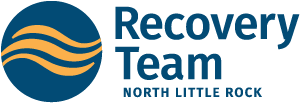About The Recovery Team – North Little Rock
The Recovery Team, founded 10 years ago, is known as one of the top addiction treatment and mental health rehab centers in the country. The treatment centers provide therapy and medications (if needed) that get to the root of the issue in a welcoming, comfortable environment. Treatment is covered by insurance and backed by hundreds of positive reviews.
Latest Reviews
See AllRehab Score
Gallery
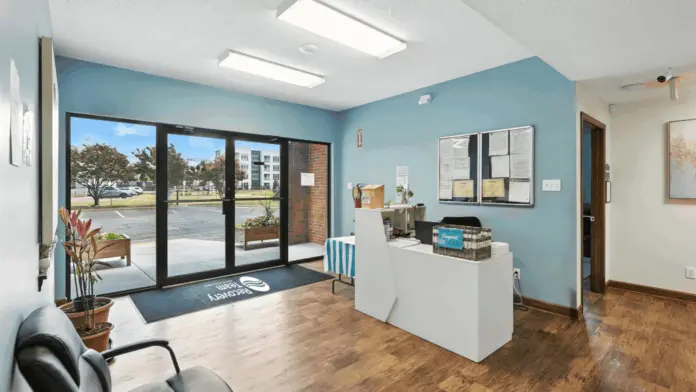
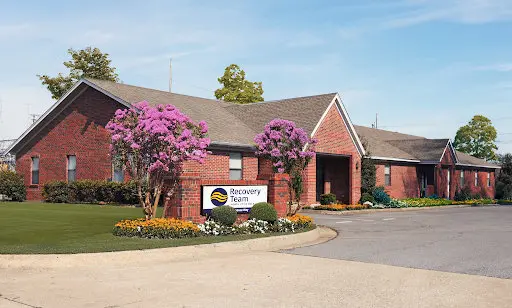
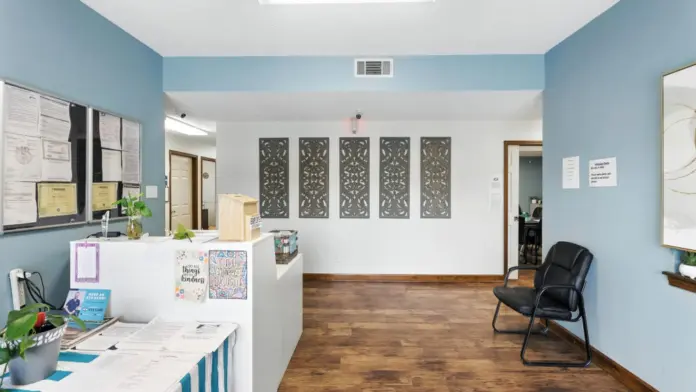
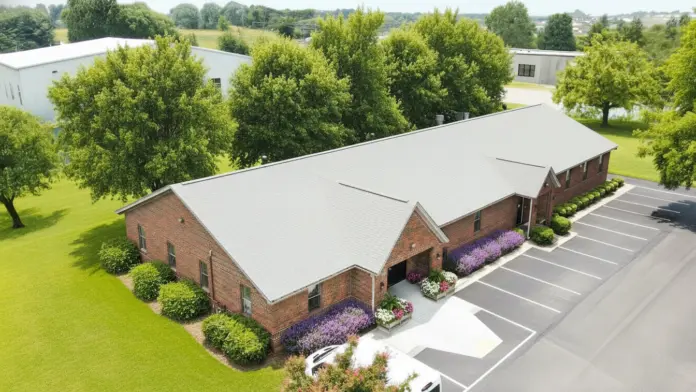
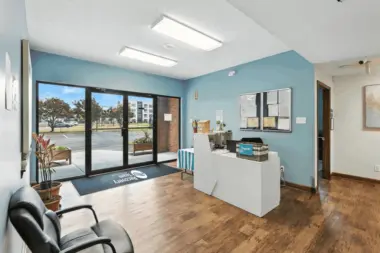
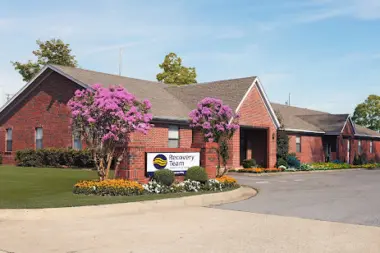
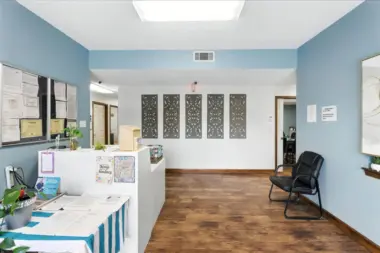
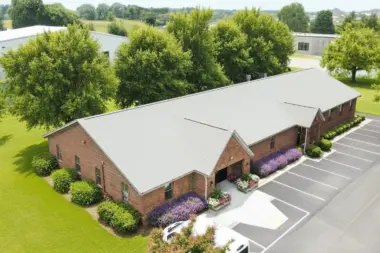
Accepted Insurance














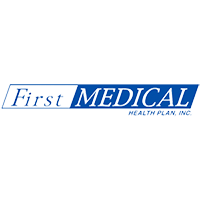

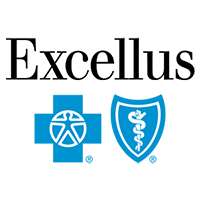








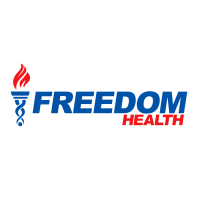










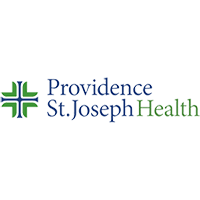


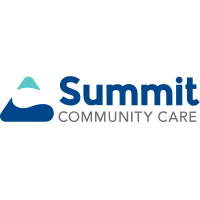





Other Forms of Payment
Private insurance refers to any kind of healthcare coverage that isn't from the state or federal government. This includes individual and family plans offered by an employer or purchased from the Insurance Marketplace. Every plan will have different requirements and out of pocket costs so be sure to get the full details before you start treatment.
Self-pay involves paying for treatment out of your own pocket. You can use savings or credit, get a personal loan, or receive help from family and friends to fund your treatment. If you don't have insurance or your insurance plan doesn't cover a specific program, self-pay can help ensure you still get the care you need.
Sliding scale payments are based on a client's income and family size. The goal is to make treatment affordable to everyone. By taking these factors into account, addiction recovery care providers help ensure that your treatment does not become a financial burden to you or your family, eliminating one barrier to care.
Addiction Treatments
Levels of Care
The process of a medically assisted detox is when all addictive substances are removed from your body. Usually performed in an inpatient setting, you are under the 24/7 care of licensed medical medical professionals who keep you safe and comfortable during the detoxification. Medications are often administered to help alleviate potential withdrawal symptoms.The process can vary in length, but it typically takes 5-7 days.
As a short-term outpatient treatment option, a partial hospitalization program (PHP) is often beneficial for those who don't need 24-hour care. PHPs can be used as an alternative to inpatient hospitalization or as a step down from a residential program. For a minimum of 20 hours a week, you'll make a commute to the center and return home in the evening. During PHP treatment, you can receive medication management, relapse prevention strategies, and behavioral therapy interventions.
Clients enrolled in intensive outpatient programs (IOP) may receive up to 20 hours of outpatient treatment per week, but a minimum of nine hours is standard. The intensity and frequency of treatment declines gradually as clients become more stable and prepare to transition to standard outpatient programs. Intensive outpatient treatments generally encompass a variety of modalities, including individual, group, and family therapy, recovery-focused life skills training, and medication assisted treatment (MAT).
Outpatient rehabs ensure that clients continue to receive robust and consistent therapeutic care without requiring them to reside at the treatment center. The frequency and intensity of treatment depend on clients' evolving needs, ranging from daily to weekly addiction counseling and recovery education. Outpatient programs often include peer coaching, life skills training, and individual, group, and family counseling. Outpatient levels of care include partial hospitalization (PHP), intensive outpatient (IOP), sober living/halfway housing, and standard outpatient care.
Clients in addiction recovery typically require robust, ongoing support, which rehab aftercare programs are designed to provide. These programs are premised on the idea that clients' mental, emotional, physical, social, and financial wellbeing is essential to recovery. Clients collaborate with their case managers and addiction recovery team to identify the rehab aftercare services they will need to thrive while in recovery. Clients may receive peer coaching, career counseling, and 12 step program induction, among other services.
Treatments
Alcoholism (alcohol use disorder) affects a person mentally, physically, and relationally. A person with alcohol dependence craves alcohol and has an impaired ability to control their alcohol consumption. They experience withdrawal symptoms if they stop alcohol use. Individuals with this condition can achieve recovery through treatment. Alcohol rehab in Arkansas offers inpatient and outpatient options that provide counseling, support groups, and medication to help individuals overcome alcohol addiction and maintain recovery.
The goal of drug rehab in Arkansas is to help individuals stop using addictive substances and learn healthy ways to remain clean long-term. Participants learn vital skills to cope with cravings and manage stress, to prevent relapse.
In Arkansas, substance abuse treatment programs can help you overcome drug and alcohol addiction. These comprehensive programs offer various levels of care and evidence-based therapies like cognitive-behavioral therapy (CBT), dialectical behavior therapy (DBT), and eye movement desensitization and reprocessing (EMDR). The programs effectively address substance abuse and any co-occurring disorders.
Arkansas offers dual-diagnosis addiction treatment programs for individuals with mental health and substance use disorders. These specialized drug and alcohol rehab programs provide various levels of care, including outpatient, inpatient, and partial hospitalization programs. Using evidence-based therapies, like cognitive-behavioral therapy (CBT), dialectical behavior therapy (DBT), or eye movement desensitization and reprocessing (EMDR), a team of addiction and medical experts can effectively address substance use and co-occurring disorders while enhancing your coping and relapse prevention skills.
Addiction treatment includes a heavy focus on mental health during your inpatient program. No matter the type of facility you choose - hospitals, clinics, or luxurious, hotel-like facilities - they all provide 24-hour care in a safe environment with mental health therapists and clinical staff. Mental health services include various treatment options, including individual and group counseling, addiction and relapse prevention education, and coping skills training. Additional offerings like family therapy, recreational opportunities, yoga, or mindfulness training may be available.
Programs
Adult rehab programs include therapies tailored to each client's specific needs, goals, and recovery progress. They are tailored to the specific challenges adult clients may face, including family and work pressures and commitments. From inpatient and residential treatment to various levels of outpatient services, there are many options available. Some facilities also help adults work through co-occurring conditions, like anxiety, that can accompany addiction.
Men face specific challenges and concerns when seeking addiction treatment. Gender-specific recovery programs help them tackle these issues head-on in an environment that's focused, targeted, and distraction-free. It also gives them the opportunity to connect with and learn from other men who have been through a similar journey and can offer support for the next step.
Rehabs for women provide a safe, nurturing space for female clients to heal. These treatment programs consider the specific obstacles that women can face during recovery and place a special emphasis on mental, social, physical, and reproductive health. They explore how each woman's experience has shaped the trajectory of their substance use, addressing issues such as sexual abuse and past trauma.
Nearly one million adults age 65 and older live with a substance use disorder. Treatment providers who specialize in senior care understand the social, psychological, and physical effects of aging and how they relate to recovery. They can help clients address particular challenges and risks they may face as they get older such as overdosing and medication interactions and dependencies.
Clinical Services
One of the most common types of psychotherapy, cognitive behavioral therapy in Arkansas is an effective tool for the treatment of substance use disorder. It is a common therapeutic method that is used to treat a variety of mental and behavioral health challenges.
Developed in the 1970s, dialectical behavior therapy (DBT) is a type of psychotherapy based in cognitive behavior therapy. DBT is designed specifically to help people who experience emotions intensely. It is used to treat substance use disorder, anxiety, and depression, among other mental health disorders.
Motivational interviewing is a conversational approach to treatment. It helps you express your desire for change, reflect on any ambivalence you're feeling about change, and plan for the next steps to make the changes you desire.
Individual therapy gives men and women in Arkansas the chance to engage in one on one therapy sessions that focus on identifying personal triggers and high risk situations for drug and alcohol addiction. Your therapist works together with you to develop coping strategies and build resilience that promotes sustainable recovery.
If you participate in couples therapy, your therapist may use one or more methods to help you improve communication and resolve conflict. These techniques can include emotionally focused therapy, psychodynamic couple's therapy, and cognitive behavioral therapy.
Group therapy offers men and women the opportunity to learn essential coping skills from their peers who have practiced these skills in the community. You learn new communication techniques and relapse prevention strategies that promote sobriety and sustainable recovery.
Staff & Accreditations
Staff
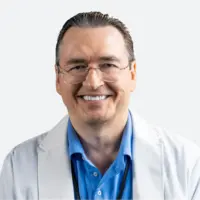
Dr. Rostislav Ignatov MD, Chief Medical Officer
Dr. Ignatov is board-certified in General Psychiatry by the American Board of Psychiatry and Neurology (ABPN) and in Addiction Medicine by the American Board of Preventive Medicine (ABPM). He completed psychiatric residencies treating children, adolescents, and adults at the University of Florida School of Medicine and Albert Einstein College of Medicine in New York. Known for his precision and direct approach, he specializes in evidence-based psychiatric care with a focus on innovative treatment methods for addiction and mental health disorders.
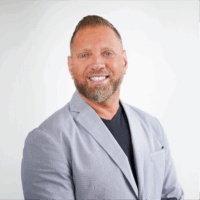
Dr. Sal Raichbach LCSW, PsyD, Chief Clinical Officer
Dr. Sal has been a leader in behavioral health since the early 1990s, holding a Master’s degree in Clinical Social Work and a Ph.D. in Psychology. Licensed in Florida, New York, New Jersey, Pennsylvania and Wisconsin, he is also certified in forensic social work. With expertise spanning addiction, trauma and mental health treatment, Dr. Sal has been featured in over 140 major media outlets, including The Washington Post, Fox News, Healthline, Huffington Post, Teen Vogue and ABC News. His work continues to influence the evolving landscape of mental health care.
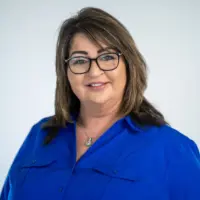
Lucy Weiss MA, CHRM, Vice President of Quality
With over 20 years of experience in mental health, Lucy is dedicated to ensuring that every patient receives safe, ethical and high-quality care. Her expertise in facility compliance, operational management and clinical quality assurance goes beyond regulations—she actively champions patient rights, dignity and safety at every level. By working closely with clinical and medical teams, she strengthens treatment integrity and accountability, giving patients confidence that their well-being is always the top priority.
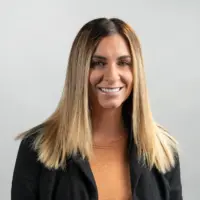
Michele Vacarino LMHC-QS, Clinical Director
Michele is a Licensed Mental Health Counselor and Qualified Supervisor with a dual Master’s Degree in Mental Health Counseling and Rehabilitation Counseling. She holds certifications in EMDR and DBT and has worked extensively with veterans and individuals struggling with PTSD. As someone in recovery herself, she understands the challenges of addiction and mental health firsthand. Her approach is direct, compassionate, and grounded in the truth that healing is always possible.
Accreditations

The Joint Commission, formerly known as JCAHO, is a nonprofit organization that accredits rehab organizations and programs. Founded in 1951, the Joint Commision's mission is to improve the quality of patient care and demonstrating the quality of patient care.
Joint Commission Accreditation: Yes

LegitScript has reviewed The Recovery Team – North Little Rock as part of their certification program, and has determined that it meets the LegitScript standards for legality, safety and transparency.
LegitScript verified in
